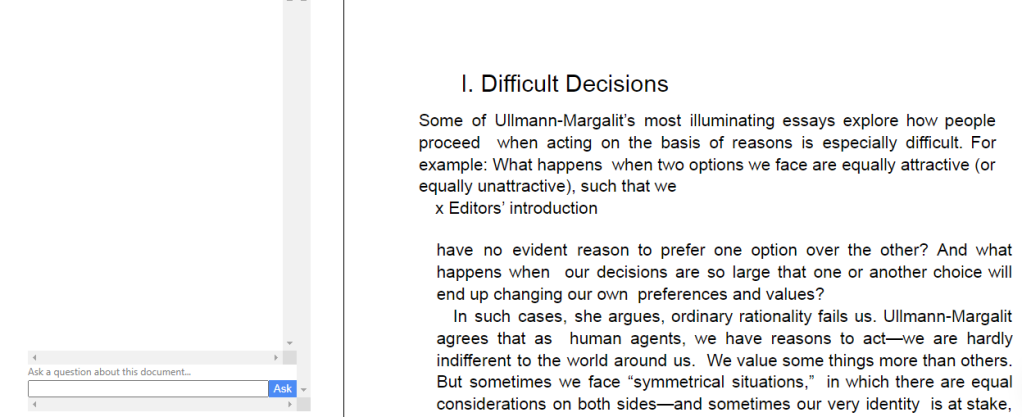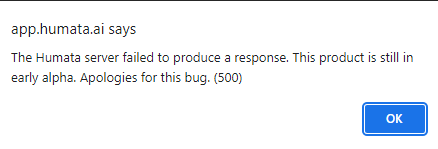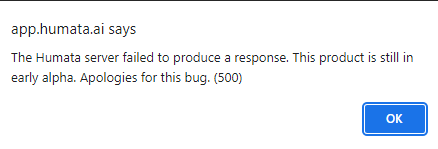Step 1: Come across a tweet by Cass Sunstein:
Step 2: Bookmark the tweet, and download the PDF. Chances are that the PDF will never be read. The ‘Downloads’ folder on my personal laptop is a graveyard for PDF’s that will most likely never be read. Make my day and tell me that I’m not the only one who does this.
Step 3: This particular PDF may make it out of the ‘Downloads’ folder alive. It is recommended by Cass Sunstein, for one. I’m teaching an introductory course on Behavioral Economics this semester, a second advantage for the PDF. Then come across a tweet about Humata.ai, which is also duly bookmarked:
Step 4: Tyler links to this in his blog post on Sunday. The starts are aligned, the Universe has sent along enough, er, nudges.
Step 5: Sign up for Humata.Try to upload PDF. No can do, Humata says. Only 10 MB or lesser.
Step 6: Run a Google search:

Step 7: Download compressed PDF.
Step 8: Upload compressed PDF. No can do, Humata says. Only 60 pages or lesser. This PDF? 68 pages. Of course.
But, Humata says, this may well change in the future. Well, lah-di-dah. But what about today? Consider scrapping blogpost.
Step 9: Open compressed PDF in GDocs, as a GDoc. Delete last 10 pages or so. Download this GDoc as a PDF.
Step 10: Upload this PDF to Humata. Hmph, says Humata, and finally allows access.

Step 11: Let’s start with something easy and predictable. Can you write a one page ELI5 of this document?
“Sure! Ullmann-Margalit’s work explores how people make difficult decisions. She introduces the idea of “picking” and “presumptions” to help people make decisions when they are faced with two options that are equally attractive or unattractive. Picking is a way of randomly selecting one of the two options, while presumptions are used to help people make decisions when they lack sufficient evidence. Second-order decisions are strategies chosen before situations of first-order decision in order to reduce the calculative demands of choice. Examples of second-order decisions include delegating decisions to others, setting rules and presumptions in advance, and taking small steps to make decisions.”
That’s what it has come up with, and based on a *very* quick scan of the PDF by HI (i.e., me) this seems… ok. Note that I have still not read the PDF! Let’s ask some more questions, shall we?
Step 11: What is solidarity in consumption?

Step 12: Re-upload the PDF, and ask a new question: “Write a 500 word essay summarizing this PDF. I need to submit this as homework in my college”

Step 13: Channel one’s inner Bruce, and try again. “Can you please write an essay summarizing the first chapter?”

Step 14: Give up for now.
Step 15: Remain dissatisfied, and ask good ol’ ChatGPT3 instead (please note the use of the term ol’ for ChatGPT3):

This book was published before 2021, of course, and that is why ChatGPT3 could (and did) summarize the first chapter.
- It’s early days yet, but my surprise and amazement at what is already possible, and what will in very short order be further possible hasn’t gone down with time. Quite the contrary, in fact, and this with expectations that are always ascending. What a time to be alive.
- Humata.ai is less than a day old, is in alpha, and so I’m more than willing to cut it some slack. But one’s own PDF’s being analyzable? Hallelujah!
- Imagine being able to upload a PDF of a technical drawing. Or MOSPI documents about GDP, or IIP or some such. Eventually, PDF’s in local languages. Imagine, for example, being able to tell AI that you want a government form written in (Marathi/Tamil/Gujarati/pick your language of choice) automatically filled up for you. Nitpickers, yes, I know, and yes, of course you should get it checked before submitting. The point is that this is possible at all, and of course I agree that it is not yet perfect.
- Giving assignments in college just got “tougher”. Maybe we should ban electronic devices in college? Except in faculty rooms, of course. That’s ok. Contradiction? What contradiction?
- Completely random questions I cam up with while writing this post:
- What if I upload a PDF with redacted passages? Can AI figure those out too? I’m guessing no, but I’m no longer sure.
- What if people upload PDF’s (and it need not be only PDF’s for very long. The format is not the point) after a gynaecologist visit? Will sex determination be possible at home? What do we do then?
- How do we measure productivity in the years to come? Whose productivity?
- What a time to be alive.
